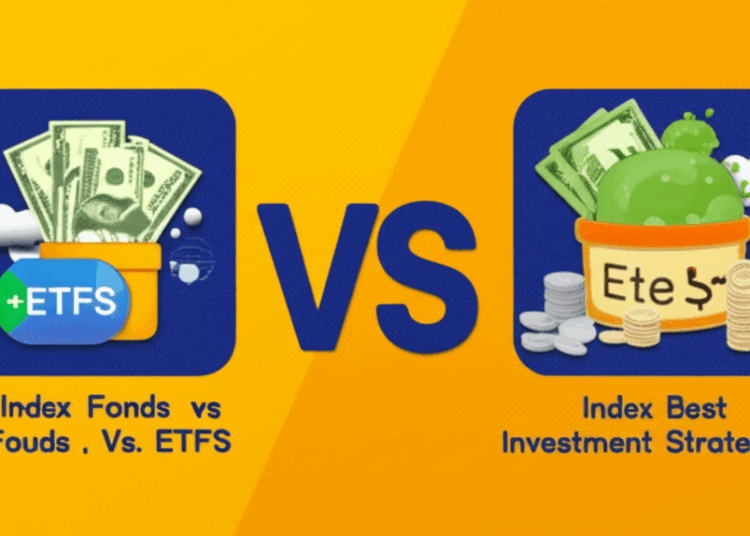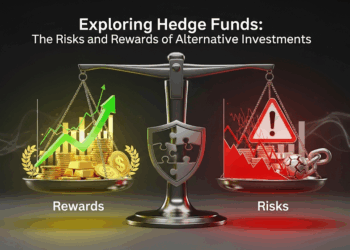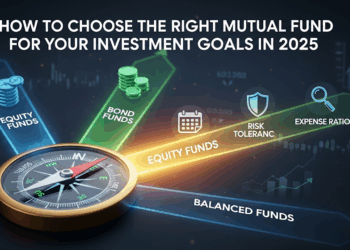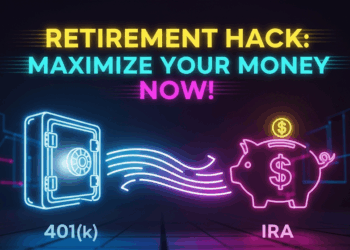Index Funds vs. ETFs: The Ultimate Showdown for Beginners
Stepping into the world of investing can feel like walking onto a battlefield of jargon and confusing choices. But what if you could cut through the noise and start your journey with two of the most powerful weapons in finance? For millions of new investors in the U.S., the ultimate showdown is between Index Funds and ETFs. Both are superstars, but which one is the perfect fit for your investment strategy?
Let’s settle the score and find out.
The Contender: Index Funds
image from: gemini.google.com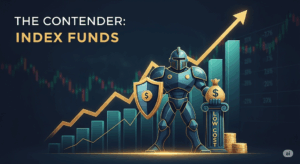
Imagine owning a slice of the entire U.S. economy with a single purchase. That’s the magic of an Index Fund. It’s a low-cost powerhouse designed to mirror the performance of a major market index like the S&P 500, giving you instant, broad diversification. The secret? It removes emotion and human error from the equation, promising to match the market, not beat it.
Why It’s a Champion:
- Simplicity is King: It’s the ultimate “set it and forget it” tool. You invest, and the fund does the rest, with no need for active management.
- Unbeatable Value: Thanks to its hands-off approach, the fees (known as expense ratios) are incredibly low, ensuring more of your hard-earned money stays in the game.
Where It Has a Weak Spot:
- You can only trade at the end of the day, after the market has closed. While this is a bonus for disciplined investors, it’s not for those who want real-time action.
The Challenger: ETFs
image from: gemini.google.com
The modern, agile challenger in this battle is the ETF (Exchange-Traded Fund). An ETF also holds a basket of assets, but with a crucial twist: it trades on the stock market all day long, just like a single company’s stock. This gives you unparalleled flexibility and a world of options.
Why It’s a Champion:
- Agile and Accessible: You can buy or sell an ETF at any moment the market is open, making it a flexible tool for your investment strategy.
- Zero-Commission Trading: Many brokers now offer commission-free trading for most ETFs, making it incredibly easy to start with very little money.
- Tax-Smart Moves: For taxable accounts, ETFs are often considered more tax-efficient, a key component of savvy financial planning.
Where It Has a Weak Spot:
- Its very flexibility can be a trap. The temptation to constantly check prices and trade too often is real, and it can undermine a sound wealth management strategy.
The Final Verdict: Which Strategy Wins?
image from: gemini.google.com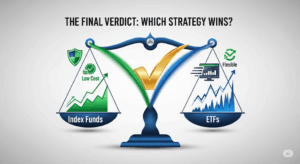
The great news is there’s no losing team here—both are champions for beginners. The winner is the one that best suits your personality.
- Choose the Index Fund if: You want the ultimate in simplicity and discipline. If you’re a long-term player who wants to make a few smart moves and then let time do the heavy lifting, the Index Fund is your perfect match.
- Choose the ETF if: You crave more flexibility and enjoy the process of trading. If you’re comfortable with the rhythm of the stock market and want access to a vast universe of options, the ETF is your winning play.
The most important move you can make is to simply get in the game. So, which one will you choose to start building your financial future?

